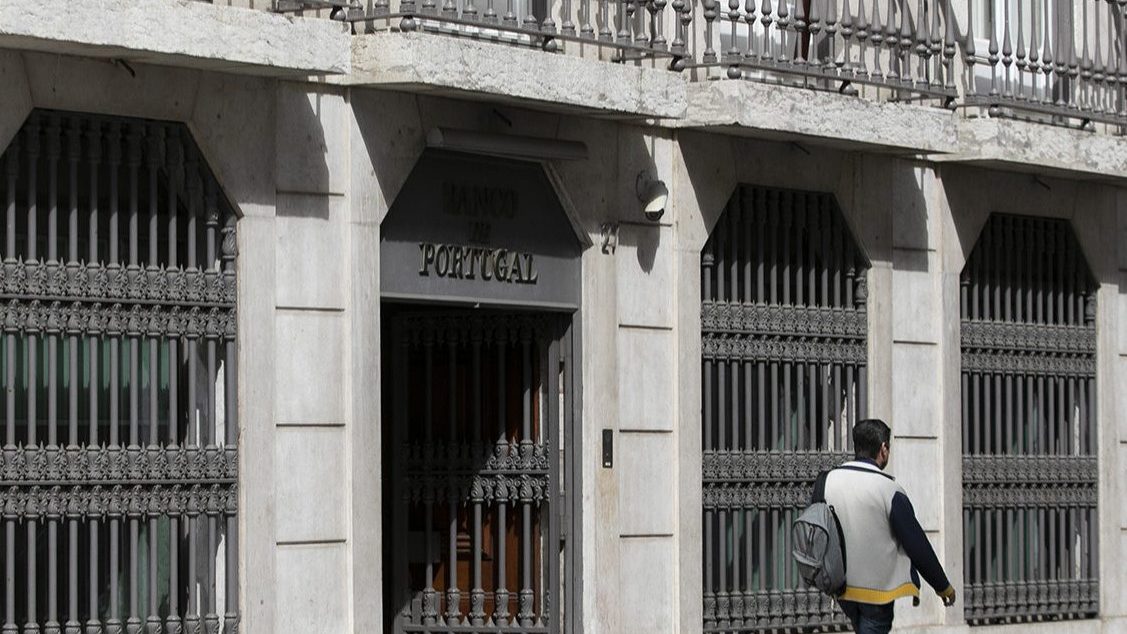New year brings widespread inflation-driven price hikes
2023 will be marked by the generalised increase in prices that consumers will pay for the services they use in their daily lives.
The coming year will be marked by the generalised increase in prices that consumers will pay for the services they use in their daily lives, with inflation in November reaching 9.9%.
Electricity will rise for those on the regulated market, but also for some customers who have switched to the liberalised market, pressured by the prices of natural gas, used to produce electricity.
Road toll charges will also increase, as will rents, although the government has limited the impact of inflation on these prices.
The price updates already known for 2023 are as follows:
Electricity
The price of electricity on the regulated market will rise by 1.6% in January 2023, compared to December, and the increase will amount to 3.3% compared to the average this year, figures higher than those proposed in October, announced ERSE – the Energy Services Regulatory Authority.
According to data published by ERSE, with this increase, the average monthly bill, as of January 2023, for a couple without children (power 3.45 kVA, consumption 1,900 kWh/year) increases €0.54, and for a couple with two children (power 6.9 kVA, consumption 5,000 kWh/year) rises €1.41.
In the liberalised market, EDP Comercial has announced that it will increase by around 3%, on average, the price of electricity bills for residential customers, from January 1, reflecting the volatility of the cost of acquiring energy.
For its part, Endesa plans to maintain the overall price of customers’ electricity bills in 2023, starting to include the cost of the Iberian gas price cap mechanism, but reducing electricity prices, the company warned in a note to customers.
Iberdrola said that customers’ electricity bills will fall, on average, by 15% in 2023, noting that this reduction “applies to the components of energy and access costs. This “naturally excludes taxes, fees and other amounts defined by the state,” Iberdrola said in a statement.
Galp will reduce electricity bills by about 11% on average from the beginning of 2023, an official source told Lusa. Thus, said the same source, “for an average consumption of a typical family with two children, the most common in Galp’s portfolio of clients, this update will translate into an average decrease of between 3.5 euros and six euros” per month.
Gas
Natural gas bills will increase from January by about 3% for the most representative customers in the regulated market, following a deviation in the forecasts of acquisition prices, ERSE announced.
In a statement, the entity said it updated “the price of the energy tariff of the regulated market, by an additional two euros per MWh, effective from January 1, 2023.”
As a result, the average monthly bill, as of January 2023, for a couple without children (1st consumption bracket, consumption 1,610 kWh/year) increases by €0.33 and for a couple with two children (2nd consumption bracket, consumption 3,407 kWh/year) increases by €0.70.
In turn, Galp indicated that for its customers “natural gas bills will remain unchanged in the first three months of 2023”.
Rents
Rents will only be able to rise, as of January, by up to 2%, after the government published a law to that effect, in the official gazette, in October, as part of the measures to mitigate the impact of price rises.
Under the terms of Law no. 19/2022, “during the calendar year of 2023 the annual rent updating coefficient of the several types of leases foreseen in article 24 of Law no. 6/2006, of 27 February will not apply”, with the coefficient to be in force in the several types of urban and rural leases covered of 1,02, “without prejudice of stipulation different between the parties”.
Even so, the rent updating coefficient defined for 2023 (1.02) is the highest in the last nine years. In 2022, a coefficient of 1.0043 was applied and in 2021 of 0.9997.
Tolls
Road tolls will increase by 4.9% starting in January, announced the minister of infrastructures, considering the solution reached to be “balanced”.
“It was clear to us that an increase of 9.5% and 10.5% was unbearable, but there are also contracts and responsibilities and we tried to find a balanced solution that would allow for a lower increase,” said the minister, Pedro Nuno Santos.
Thus, as of January 1, 2023, tolls will have an increase of 4.9% in the amount borne by users. Above this amount, the minister said, “2.8% will be the State’s responsibility and the remainder, up to 9.5 or 10.5%, will be borne by the concessionaires.
This solution is the result of “shared responsibility” and prevents the price of tolls under concession contracts from increasing by 9.5% and 10.5% in 2023, due to the current context of high inflation.
Transport
The mobility and transport authority (AMT) disclosed in October that the update of transport fares was expected to be 6.11%, recalling that it has as its maximum value the average variation rate of the consumer price index, except housing, in the 12 months between October 2021 and September 2022, or 0 when this rate is negative.
However, the authority said in a note published on its website, for 2023, “in the current macroeconomic context, taking into account the rate of inflation, the Cabinet Resolution no. 74-A/2022, of 6 September, and without prejudice to the respective compensation to be attributed by the appropriate transport authorities”, there will be “no increase in ‘public transport passes'” and “the maintenance, during the year, of the fare pricing in force in 2022 for CP (rail) transport tickets” regarding regular services, that is, the fare increase of 6.11%, may only apply “to occasional transport tickets and fares”.
Thus, passes of the Navegante fare pricing system and occasional tickets of Carris Metropolitana will maintain in 2023 the prices charged this year.
Occasional tickets of the Andante intermodal fare pricing system, of Porto Metropolitan Area (AMP), will suffer an average increase of 1% as of January, said Transportes Intermodais do Porto (TIP). The monthly passes will not suffer any increase.
Telecommunications
Altice Portugal, Meo’s owner, will update prices as of February, and customers with only fixed voice and pensioners with a pensioner plan are excluded from this increase, the chief executive told Lusa.
The position of the remaining operators is not yet known.
Bread
The price of bread should rise again in 2023, due to the increase in the cost of raw materials and energy, but also impacted by the update of the national minimum wage, ACIP told Lusa.
“Much will depend on the variation in prices of raw materials and energy, but it is very likely that it will increase, even by the impact of the increase in the minimum wage,” the board of the Association of Trade and Bakery Industry (ACIP), said in response to Lusa.
According to the association, only part of the increases have been reflected in the price paid by the consumer, the rest has been borne by producers who, in turn, record a drop in profit margins.


